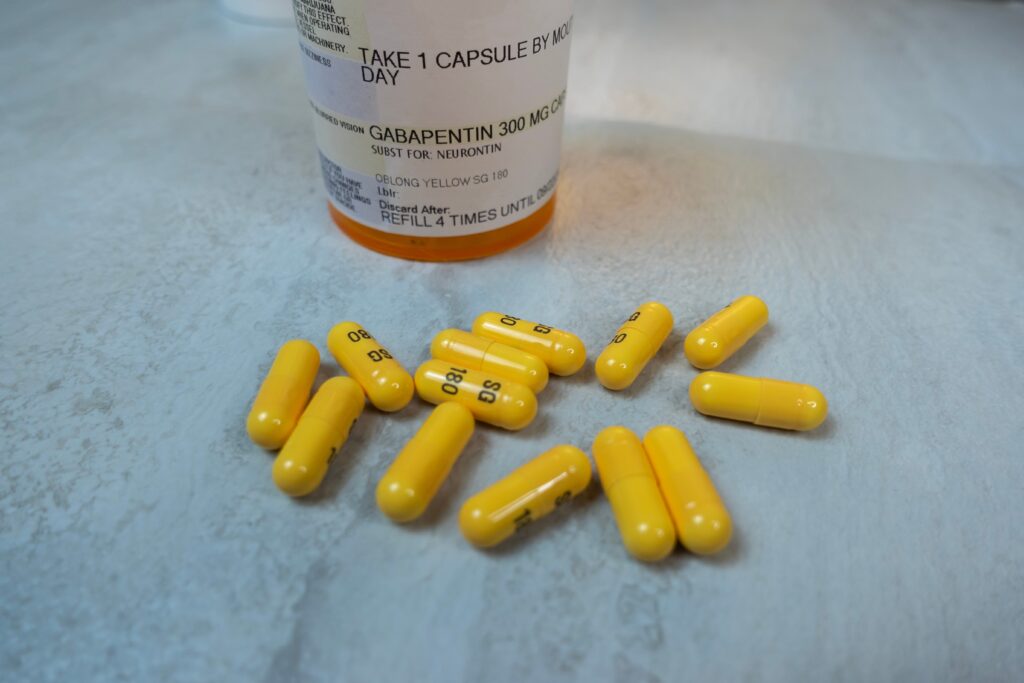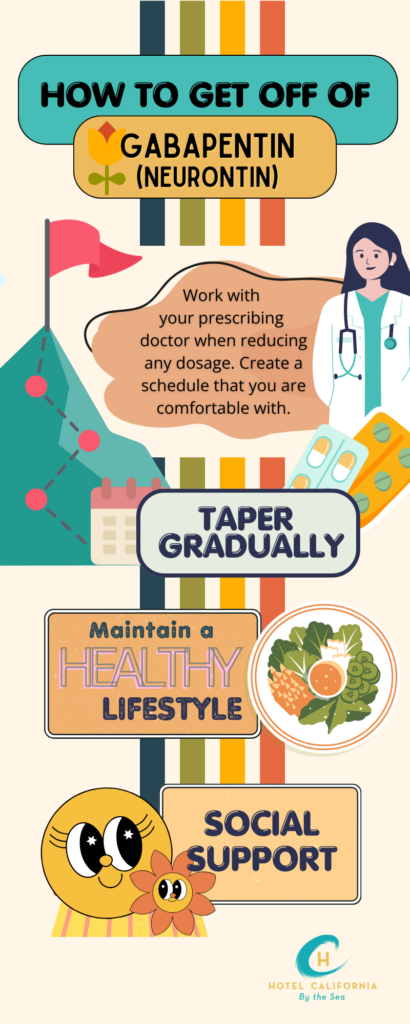How to get off Gabapentin
Gabapentin has become one of the most popularly prescribed as well as popularly used prescription medications in the U.S. The anticonvulsant is used to help treat seizures, restless leg syndrome, post-herpetic neuralgia, nerve pain and others for other off-label purposes such as fibromyalgia and migraines. It is generally a well-tolerated medication with a very low risk of dependence and abuse. Prescription use of gabapentin has significantly increased throughout the past decade with recent studies showing a growing trend in illicit use, abuse and accidental overdose-related deaths associated with the drug.

With its increase in popularity, researchers and clinicians are now seeing more patients experience withdrawal symptoms due to increased use and abuse of the drug. Part of the reason is due to its ability to treat a wide range of conditions which also include off-label uses for hot flashes, pain management, alcohol withdrawal management, cocaine withdrawal management, anxiety disorders, bipolar disorders and sleep disorders. Withdrawal from gabapentin is generally not a common occurrence. However, with the rise in abuse, users are now wondering how to get off gabapentin safely and effectively.
Growing Gabapentin Misuse
Several states with a rising gabapentin abuse problem have independently declared the drug to be a controlled substance. It remains uncategorized at the federal level. These states are considering legislation to help stop misuse and authorize special monitoring requirements in place for the drug.
Multiple studies have shown that dependence and withdrawal from gabapentin are the most common among those who use at least one other mind-altering substance such as alcohol, cocaine or opioids. In most cases, these users already suffered from substance or alcohol use disorder before they began misusing gabapentin. The growing concerns surrounding drug misuse were found to be higher among those who also misuse opioids. Opioid users reported using gabapentin to intensify their euphoric experience. Cocaine users also reported using gabapentin for the same reason. Other cocaine users reported using the drug to help alleviate their cocaine withdrawal symptoms.

How does Gabapentin work?
Gabapentin belongs to a class of drugs called gabapentinoids. The chemical structure of the drug is similar to that of gamma-aminobutyric acid, which is an inhibitory neurochemical used to transmit signals to muscles and other nerve cells throughout the body. Gabapentin is commonly prescribed in off-label uses for treatments of a variety of pain. Ironically, scientists and researchers still aren’t exactly sure of the mechanisms of the drug and how gabapentin works to relieve pain and control seizures.
How to get off Gabapentin
There may be many reasons why a person would want to stop taking gabapentin. In some cases, the medication might not be working to relieve pain or prevent seizures. Your medical provider might want to switch you to a completely different drug. This sudden stop-and-switch can cause the user to experience withdrawal. In another case, the user may find an alternative nondrug therapy that is more effective in relieving their pain and stop using the gabapentin. This abrupt stop can cause withdrawal. And if the user’s condition improves, they may feel they no longer need to take medication. Again, and abrupt cessation of gabapentin can lead to experiencing withdrawal symptoms.
The safest and most effective way to get off gabapentin is through tapering. Abruptly stopping the medications can lead to intense and dangerous withdrawal symptoms. Under the guidance of a medical provider or professional clinic, a well-managed and gradual taper of the medication can help avoid uncomfortable, dangerous and life-threatening withdrawal symptoms. Slowly tapering off gabapentin will allow the brain and body to slowly rebalance back to its natural neurochemical state.
The effects of tapering off gabapentin will be dependent on many factors including your prescribed medication dosage, how long you have been taking the medication and other individual medical concerns. Your medical provider can recommend lowering your dose over the course of a week or several weeks. Typically a person will gradually decrease their dose over a minimum of one week before completely quitting the drug. In extreme cases, it can take up to a year of tapering off the medication in order to manage and avoid extreme withdrawal symptoms.
Check Your Insurance Coverage for FREE
Find out if your insurance covers addiction treatment in minutes. We accept most insurance!
What can happen if you suddenly quit Gabapentin?
If you abruptly stop taking gabapentin, chances are, you will experience withdrawal symptoms. Withdrawal can happen in cases when you miss a dose, when you quit abruptly, with prolonged use or when you switch medications. The risks of withdrawal are much higher when you take a high dose of gabapentin or have been using the drug for longer than six weeks. Withdrawal symptoms can begin anywhere from 12 hours to 7 days after you have stopped medication use. However, the majority of users experienced withdrawal within 24-48 hours after the last dose.
The severity of withdrawal depends on several factors.
- Length of time drug was used – extended use of the drug often leads to a heightened dependence and more severe withdrawal symptoms
- Dosage – higher doses of the drug can lead to more pronounced and intensified psychological withdrawal symptoms
- Daily habits – having a healthy lifestyle that incorporates stress management can make the withdrawal process smoother
- Social support – the presence of a strong supportive network of friends and family can help with the psychological aspects of withdrawal
- The use of other substances – using other drugs alongside gabapentin can influence the outcome of withdrawal and can even intensify the symptoms
- Mental health – those who have underlying mental health conditions can experience more intense symptoms due to interactions between gabapentin and the central nervous system
- Individual health – a person’s age and variation in metabolism play a significant role in breaking down gabapentin in the body
Side Effects of Gabapentin Withdrawal
- Agitation and irritability
- Anxiety – nervousness, worry and fear
- Suicidal thoughts and behaviors along with compulsive or strange thoughts
- Restlessness
- Insomnia – difficulty falling asleep and staying asleep
- Nausea and vomiting – common symptoms of gabapentin withdrawal
- Flu-like symptoms
- Irregular heart rate and high blood pressure
- Confusion and disorientation
- Headache
- Tiredness and fatigue
- Weakness
- Statue epileptics – the rapid cycle of seizure activity at almost a constant seizure
- Mood swings
- Flu-like symptoms – fever, sweating and tremors
- Double vision and sensitivity to light and sound
- Swelling of feet or legs
- Lack of coordination
- Hallucinations
Reach out to Hotel California by the Sea
We specialize in treating addiction and other co-occurring disorders, such as PTSD. Our Admissions specialists are available to walk you through the best options for treating your addiction.
Treatment for Substance Use Disorder
When using gabapentin and suddenly stopping the medication, users can experience a wide range of withdrawal symptoms. In some cases, it can be uncomfortable. In more severe cases, it can be extreme and life-threatening. The best treatment for gabapentin withdrawal is to resume the normal dose of medication and talk to a health care provider or behavior health treatment program to help you strategically develop a taper plan to safely come off the medication. The treatment of gabapentin withdrawal requires addressing both the physical and psychological aspects of the condition. Detox programs at Hotel California by the Sea provide clients with individualized treatment plans to gradually taper off the drug and minimize dangerous withdrawal symptoms.
We offer treatment at all levels of care, which not only includes detox, but residential, PHP and IOP as well. We utilize evidence-based treatment methods such as CBT, DBT, and EMDR therapy. Hotel California by the Sea is dedicated to helping our clients achieve their goals of sobriety and overcoming their addiction.
References:
https://www.healthline.com/health/how-to-stop-taking-gabapentin
https://pride-institute.com/lgbtq-addiction-blog/what-are-the-signs-of-gabapentin-withdrawal
https://www.verywellmind.com/gabapentin-withdrawal-symptoms-timeline-and-treatment-4176217
https://www.medicalnewstoday.com/articles/how-to-stop-taking-gabapentin
https://www.choosingtherapy.com/gabapentin-withdrawal
https://www.alternativetomeds.com/blog/gabapentin-withdrawal
